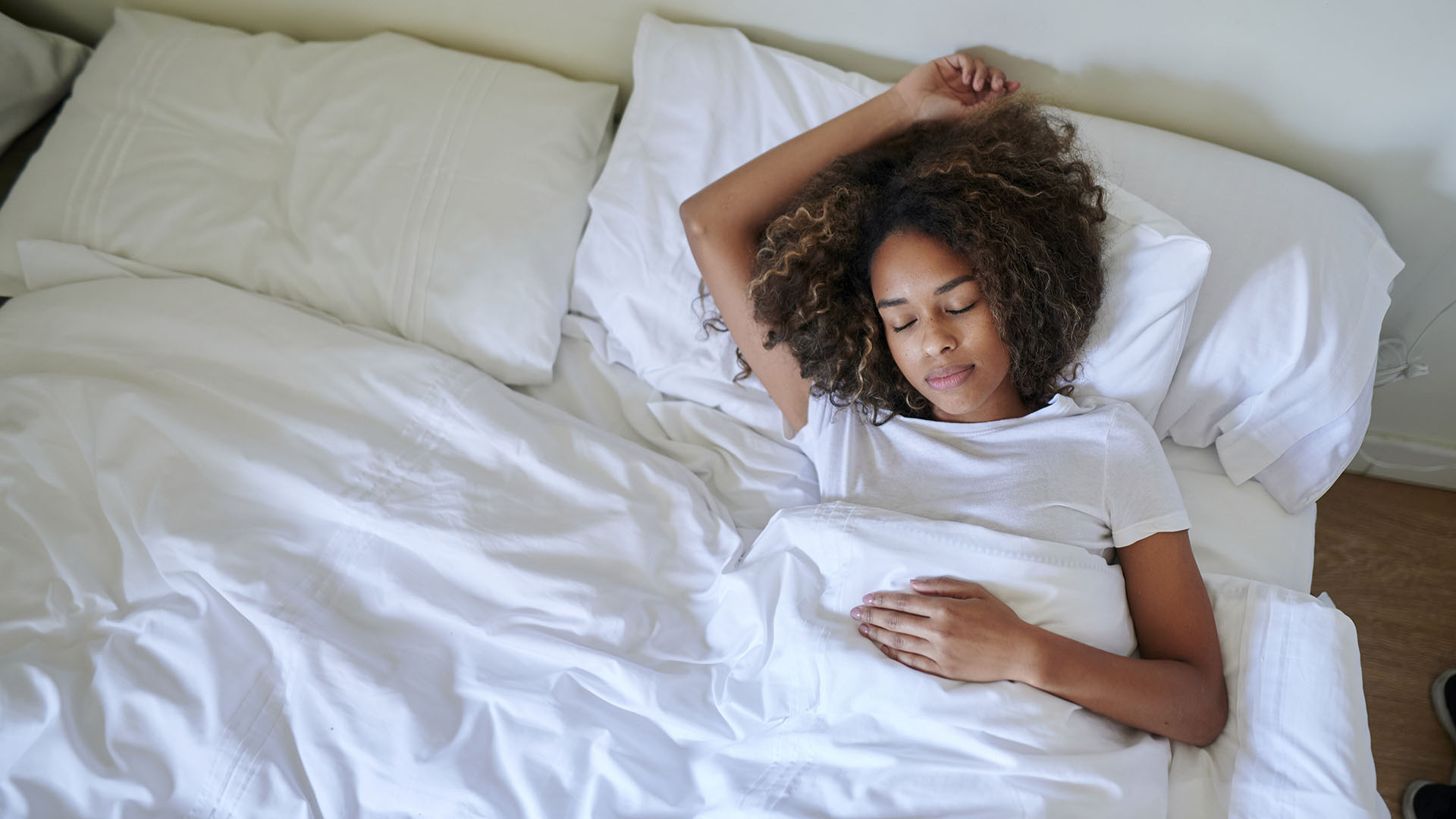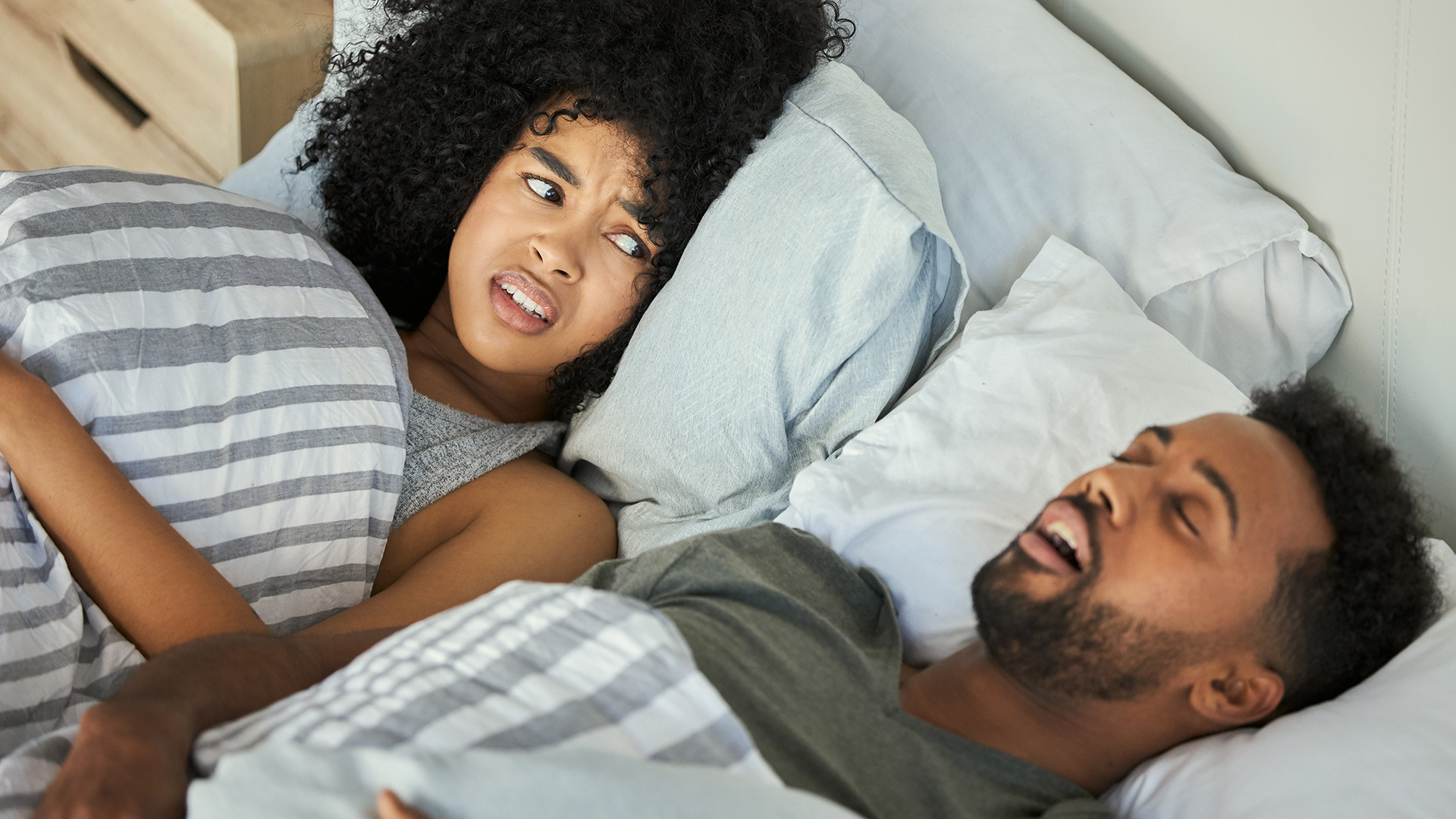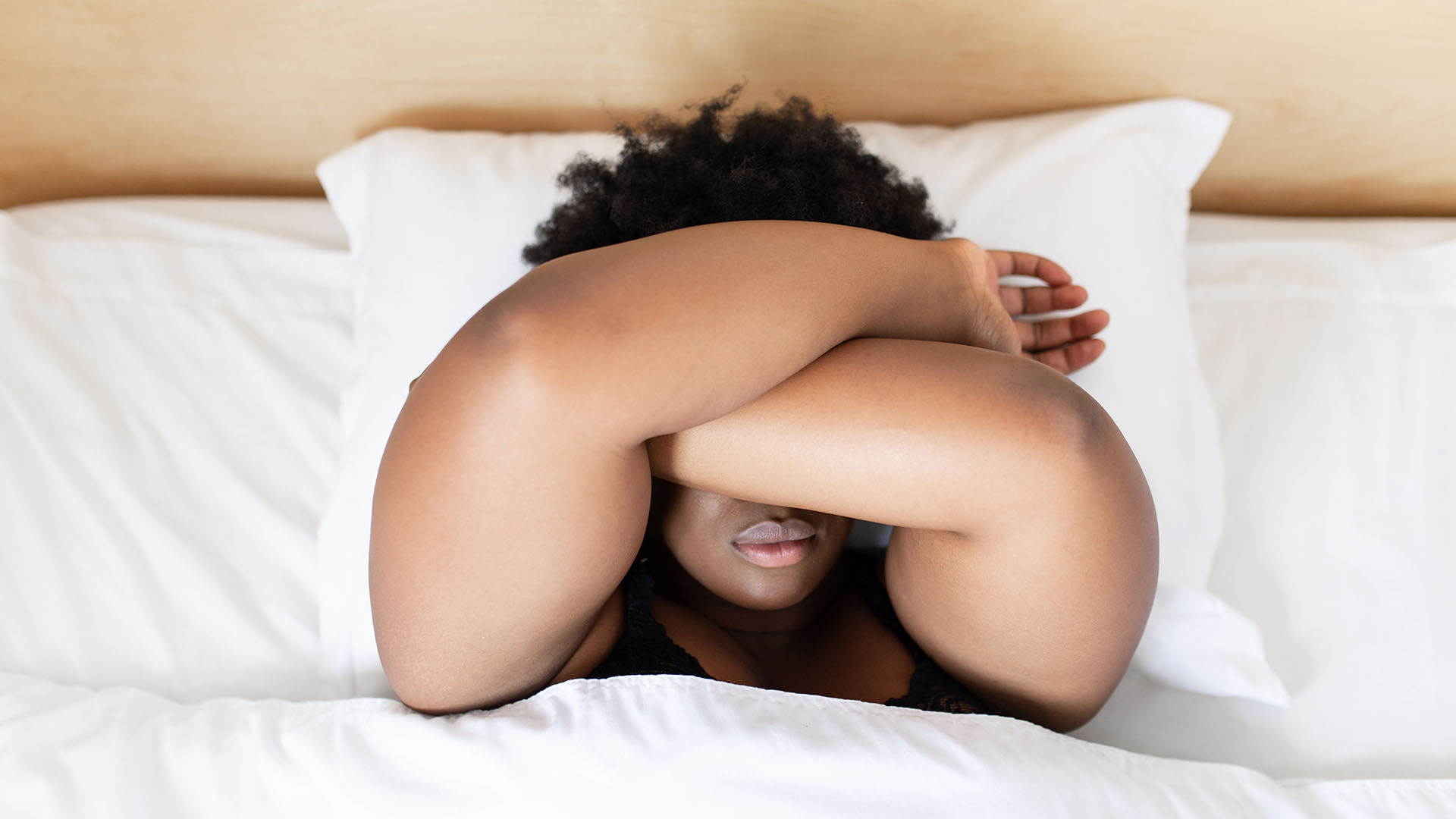What happens to your body when you sleep on your back?
Back sleepers, here's exactly what's happening when you turn in for the night

We talk so much about sleep it's a surprise that any of us actually have time for it – but have you ever wondered what happens to your body if you sleep on your back? Sleeping on your back can be uncomfortable for some, but according to research, around a third of us (37%) of us sleep in this position at night, so knowing the advantages or disadvantages of back sleeping, compared to side sleeping or tummy sleeping, are important.
Sleep positions are very rarely taught or controlled; we simply find what works best for us – but that doesn't mean to say it's good for our physical health. As we sleep and rest our bodies the position we find ourselves in can dictate how our joints, muscles and even skin is affected so knowing the facts is important (what you're lying on plays an important role here too, which is why you'll find info in our best mattress ranking about which bed is right for which sleep position).
Most of us sleep for around 7-9 hours a night – and we know rest is important for our mental and physical wellbeing so sleeping in the right position will also have a knock-on effect – so we've asked the experts and looked at the latest research about what happens to your body when you sleep on your back and if this sleep position is actually healthy for us.
Is it good to sleep on your back?
If you're a back sleeper, then the good news is that it's one of the healthiest positions to sleep in. It can be good news for spinal alignment, as well as keeping your skin clear. But be wary, if your partner snores; you'll have to try and get them out of the habit – as lying on your back can make it worse.
Let's look at the benefits of back sleeping first. "Not only can it help stop back pain, but it also allows all of your body to relax by evenly distributing your weight, which is highly beneficial for your body to recover, says Aimee Brame, a consultant physician from Sleep Centre at London Bridge Hospital, part of HCA Healthcare UK. (You'll find more info in our guide to the best mattress for back pain.)
As well as promoting correct spinal alignment, sleeping on your back is also good news for the face and aging: "As your face is not touching a pillow, this is the best position, as a pillow can harbor oil from your hair as well as dust and dirt, which when your face is pressed into can cause breakouts," adds Brame. "The friction and pressure from your face being against a pillow can also break down the collagen, which can lead to wrinkles."
What are the disadvantages of sleeping on your back?
Bad news if you're a snorer, as back sleeping can make it worse, and even develop into something more serious. "Sleeping on your back is the worst position for those who snore, which can cause sleep apnoea, where you stop breathing in your sleep due to the muscles in your tongue and throat relaxing," says Brame.
It can also be problematic for people with acid reflux. If that's you, it's best to sleep on your side or try and prop yourself up with a pillow as you sleep.

Is there anyone who should not sleep on their back?
Babies sleep on their backs, as this is thought to be the safest position for them, but a majority of us grow out of it, and end up sleeping on our sides as adults. While there are some who could naturally find it more uncomfortable, says Brame: "If you are pregnant, sleeping on your back can cause more discomfort, but it varies from person to person. Some people find that sleeping on their back can increase back pain, while others believe it is the best position.
Get instant access to breaking news, the hottest reviews, great deals and helpful tips.
What kind of mattress is best for back sleepers?
While sleeping on your back, the really important thing is to ensure your back is fully supported. If your mattress is too soft, your pelvis will sink too low into the sleep surface, leading to back pain in the medium/long term. Our best firm mattress guide has plenty of super-sturdy options, but if that sounds off-putting, a medium-firm option should be fine for most people (in fact, our best mattress for back pain guide is a good place to start, as all of those models balance excellent support with comfortable cushioning).
Another trick is to pop a pillow under your knees, allowing your spine to feel fully supported. The loft (which means the height of the pillow) will also help with comfort and spinal alignment. If you're lying on your back, you'll typically need a shallower pillow than you would if you were to lie on your side, in order to avoid an uncomfortably angled neck.
What happens to your body when you sleep on your back?
Feel refreshed and more limber after you sleep on your back? This is because gravity keeps your body evenly weighted whilst sleeping on your back, which takes the pressure off your back, joints, and muscles.
Brame explains: "This helps your whole body relax, which is the best way for your body to recover. One reason why we sleep is for our bodies to recover and repair, so finding a position that gives your body the best chance of doing this can be beneficial."
According to research, as we age more of us gravitate to sleep on our backs – maybe it's our body's way of keeping us healthy as we grow older.

What's the best sleeping position?
We've already figured out that sleeping on your back can be a great choice, health wise, unless you snore or have sleep apnea, but what if you're a side sleeper or sleep on your front?
Brame suggests for those who snore then side sleeping can be the best position for you: "Sleeping on your side helps your airways open most, which makes you less likely to snore or suffer from sleep apnea." However, it's also great for the spine, as Brame notes that it 'takes the pressure' off, and in return 'allows your muscles and joints to completely relax.'
She adds: "Sleeping on your left side can help with acid reflux and heartburn, which some people find worsen at night due to lying down flat, which allows stomach acid to travel up your esophagus. "
Despite 10 per cent of the population sleeping on their stomachs, it's the least healthy sleep position as it strains the neck and spine: "Sleeping on your tummy can result in waking up with a sore neck or back. Most of your body weight is found in your stomach, so when you sleep on your stomach it is pulled down into the mattress. This flattens the natural curve in your spine which can lead to back pain," adds Brame.
If your current sleeping position is causing aches and pains, you can learn how to sleep on your back. The best thing to do is strategically employ pillows – a pillow beneath the knees and one to the side can help you maintain a healthy back sleeping position throughout the night.

Dr Aimée Brame is a Consultant Physician who has completed specialist training in Respiratory, General Medicine and Intensive Care Medicine. She specialises in pulmonary vascular disease and pulmonary hypertension. She is currently involved in a number of clinical studies investigating changes in haemodynamics in a range of clinical conditions. She has authored several book chapters and has been published in a number of peer reviewed journals. Her special interests include breathlessness and long COVID.

Sarah is a freelance writer who has been published across titles including Woman & Home, The Independent, and the BBC. Sarah covers a variety of subjects, including health and wellness. For Tom's Guide Sarah often writes about sleep health and hygiene, and interviews leading sleep experts about common issues such as insomnia and sleep deprivation.
 Club Benefits
Club Benefits





